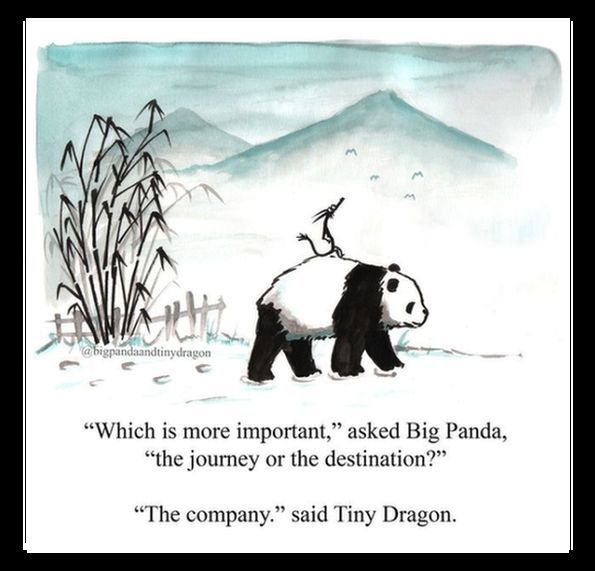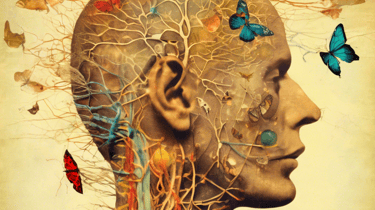Working together to fine tune psycho-somatic practices for better resourced self-regulation. Integrate emotions & grow into a more loving nervous system.
for Healthier Nervous System Regulation
R. Alejandro C. Zuluaga
Educator, Mentor & Facilitator
Mentoring & Accompaniment
Wellness Recovery Practices
"Embodying Coherence" can be defined as the process of achieving a harmonious integration of mind, body, and emotions, leading to a state of alignment and balance in one's overall experience of self. This concept encompasses several key elements:
Integration: It involves the synthesis of various aspects of the self—thoughts, feelings, physical sensations, and experiences—into a cohesive whole, allowing for greater self-awareness and understanding.
Somatic Awareness: This process emphasizes the importance of bodily sensations and experiences, recognizing that the body holds key information about our emotional and psychological states. Techniques such as mindfulness, breath work, and movement practices can enhance this awareness.
Self-Regulation: Embodying coherence often leads to improved emotional and physiological self-regulation, allowing individuals to respond more effectively to challenges and stressors in their lives.
Connection: It fosters deeper connections with oneself and others. By achieving coherence within, individuals may experience increased empathy, compassion, and the ability to engage authentically in relationships.
Resilience: This state of being enhances resilience, enabling individuals to navigate life's ups and downs with greater ease and presence.
Overall, embodying coherence promotes holistic well-being and a sense of alignment, empowering individuals to live more fully and joyfully in each moment.
By utilizing a diverse range of somatic practices and techniques, we gradually optimize and fine-tune our nervous systems. We also begin participating in small group pods for co-regulation and group care.
Through mutuality, rapport, and the development of caring relationships over time. With repeated practice we expand our capacity for contained self-regulation within more intimate relational dynamics. This process allows us to regain the confidence to connect deeply and intimately more safely and with joyful ease.
I. Mentorship & Accompaniment
III. Embodying Coherence
V. Organismic Relational Praxis
"Organismic relational praxis" can be defined as a holistic approach to understanding and engaging in relationships that prioritizes the interconnectedness of individuals as a living organism. This concept emphasizes the following key aspects:
Organismic Perspective: This perspective recognizes that groups of individuals function as a complex system (an organism) encompassing physical, emotional, psychological and spiritual dimensions. It values the unique experiences, needs, and capacities that emerge for each person within their relationships to the collective.
Relational Dynamics: Focuses on the interactions and relationships between individuals, highlighting how these connections influence personal growth, well-being, and communal health. It considers the impact of social contexts and the environment on relationships.
Praxis: Refers to the process of acting upon beliefs and theories through practical application. In this context, it involves implementing relational practices that foster awareness, empathy, and mutual support in interactions.
Overall, organismic relational praxis advocates for nurturing relationships that enhance individual and collective well-being through an understanding of the intricate collective dynamics between people as living systems. It encourages practices that cultivate deeper connections and a greater sense of unity, oneness and belonging.
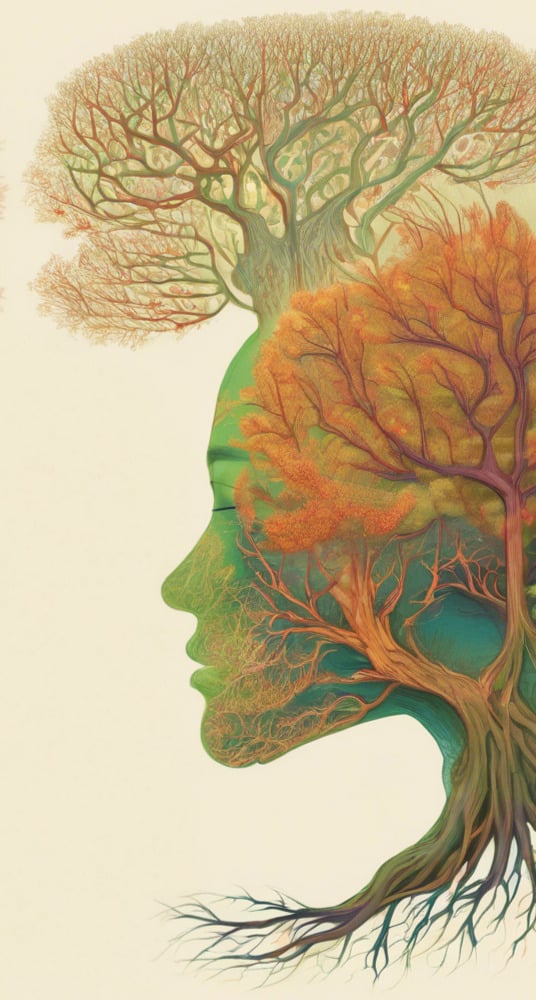

Mentorship
The Mentorship model for this body of work is a Guided Learning through Demonstration, which involves guiding individuals through a mapping process to understand concepts, while identifying discovering new insights providing support and guidance throughout the learning process. This method emphasizes experiential learning and active participation, allowing learners to observe, practice, and internalize new skills or knowledge. Key components of this approach include:
In this accompaniment process we explore and map experiences of dys-regulation. We express creatively their story and mythology, identifying their physical and emotional manifestations, and situating their significance within an ecology of environmental triggers, coping mechanisms and relational dynamics.
Demonstration:
The mentor models the behavior, skill, or concept, illustrating the process step-by-step. This visual and practical showcase helps learners grasp the content more effectively.
Active Engagement:
Learners are encouraged to participate actively during the demonstration process. This might include doing the task themselves, asking questions and discussing observations.
Support and Feedback:
Throughout the learning process, there will be reciprocal feedback provided continuously to support and refine mutual optimization of the accompaniment and mentoring process for the practicing of skills. This reinforcement enhances confidence and promotes deeper learning.
Scaffolding:
Through the process there may be scaffolding techniques, gradually increasing complexity as the relational dynamic becomes more proficient. Initial support may include detailed instructions, while later stages might involve encouraging independent exploration and practice.
Reflection:
There will be opportunities for learners to reflect on their experiences. This process may involve discussing what they learned, identifying challenges, and considering how they can apply the skills in the future.
Long-Term Development:
Mentorship aims to facilitate growth over time, creating a common ground with a common language for embodied practice and relational growth. Gradually, the need for mentorship will lessen, eventually leading to a phase where it is no longer necessary. At this point, individuals will engage in a more nuanced practice of care and attunement to the dynamic qualities of their mutual accompaniment.
Accompaniment refers to the relational and present-focused support that emphasizes being with someone during their journey. Accompaniment emphasizes relational presence, emotional support, and journeying together. Key aspects include:
Companionship: Accompaniment involves providing emotional and practical support as a companion, fostering a sense of connection and solidarity.
Process-Oriented: This approach is less about achieving specific goals and more about being present with someone as they navigate their experiences and challenges.
Intimacy and Presence: Accompaniment often involves a deep, empathetic connection, where the supporter is attuned to the needs and emotions of the individual they are accompanying.
Holistic Support: The focus is on the whole person, integrating emotional, psychological, and sometimes spiritual dimensions as individuals explore their paths.
In this accompaniment process we explore and map experiences of dys-regulation. We express creatively their story and mythology, identifying their physical and emotional manifestations, and situating their significance within an ecology of environmental triggers, coping mechanisms and relational dynamics.
Purpose:
The purpose of Guided Learning through Demonstration is to facilitate effective skill acquisition and understanding by combining visual learning with hands-on practice. By leveraging observation and active participation, this approach fosters deeper comprehension, retention, and the ability to apply knowledge in real-world contexts.
In summary, Guided Learning through Demonstration is a dynamic educational strategy that enhances learning outcomes by integrating modeling, active engagement, and supportive feedback into the learning process.
The mentorship in this process presents and lays down a framework and a language to work together, the accompaniment digests the framework and creates a relationship of trust and support for further deeper personal and relational inquiry. Most of the work through our process together will be leaning towards mutual accompaniment. Mentorship will only be offered when needed.
Accompaniment through Mentorship is the relational container for exploration that support all the inquiries for the Personal Landscape Mapping and Navigation which has 5 mapping one-on-one sessions:
Relational Weaving Practice
Personal Landscape & Core Intention
Energy Flow towards Embodying Coherence
Co-regulators & Accompaniment practice
Organismic Inquiry & Radical Intimacy Designs
Accompaniment through Mutuality & the Intentional Cultivation of Trust becomes later on the foundation for the relational container for the fluid exploration of
Practicing Embodying Coherence in a Personal, Relational and Group Container.
Exploring Radical Relational Intimacy Practice & Designs
Exploring Organismic Relational Praxis
My Approach
Radical relational intimacy can be defined as a deep, transformative connection between individuals that transcends conventional boundaries and fosters an environment of authenticity, vulnerability, and mutual understanding. Key components of this concept include:
Authenticity: Individuals engage with each other in a genuine manner, expressing their true thoughts, feelings, and experiences without pretense or fear of judgment.
Vulnerability: Radical relational intimacy encourages participants to expose their innermost selves, including fears, insecurities, and desires, creating a safe space for openness.
Mutual Understanding: This form of intimacy prioritizes empathy and active listening, allowing individuals to truly understand and appreciate each other's perspectives and experiences.
Boundary-Transcending Connection: It challenges societal norms and expectations of relationships, encouraging deeper connections that may go beyond traditional roles or structures.
Reciprocity & Mutuality: Radical relational intimacy emphasizes a two-way exchange where both individuals contribute to the relationship's depth and understanding, fostering a sense of equity and shared growth.
Holistic Engagement: It recognizes and honors the interconnectedness of physical, emotional, and spiritual dimensions, leading to a more enriched and comprehensive relationship experience.
In essence, radical relational intimacy seeks to cultivate profound bonds between individuals that prioritize deep connection, understanding, and mutual growth, often resulting in transformative personal and relational experiences.
By utilizing a diverse range of relational somatic practices and techniques, we gradually optimize and fine-tune our nervous systems to relax and open in the presence of the other. We can then begin to explore participating in small group or pods for whole-hearted co-regulated presence and group care.
Through mutuality, rapport, and the development of caring relationships over time, and with repeated practice we expand our capacity for contained self-regulation within more intimate group relational dynamics. This process allows us to regain some confidence to connect deeply and intimately with groups feeling more safely and joyful with ease.
IV. Radical Relational Intimacy Practice
Personal landscape mapping and navigation refers to the process of exploring, understanding, and actively engaging with one’s internal emotional and psychological terrain. This concept involves creating a detailed representation of an individual's experiences, feelings, thoughts, and patterns, enabling them to navigate their personal growth and development.
Key Components:
Mapping:
Self-Assessment: Personal landscape mapping begins with self-reflection and assessment. Individuals identify and articulate their emotional, mental, and behavioral patterns, as well as their strengths and challenges.
Visual Representation: This may involve creating diagrams, charts, or written descriptions that map out various aspects of one’s internal landscape, such as emotions, relationships, beliefs, and significant life events.
Navigation:
Exploration: Navigation involves actively engaging with the mapped landscape, exploring different areas of one’s emotional and psychological life. This may include recognizing uncharted territories representing suppressed feelings or untapped potential.
Goal Setting: Individuals can use their mapped insights to set personal goals and navigate their paths toward growth, healing, or deeper self-understanding.
Adjustment and Adaptation: As individuals encounter challenges or new experiences, they can revisit and update their maps. This dynamic process may involve reassessing emotional responses, beliefs, and coping mechanisms in light of new insights.
Purpose:
The purpose of personal landscape mapping and navigation is to foster greater self-awareness, emotional intelligence, and intentionality in personal development. By understanding their internal landscapes, individuals can make informed choices, navigate life’s challenges more effectively, and cultivate a deeper sense of authenticity and fulfillment.
In summary, personal landscape mapping and navigation is a comprehensive process of exploring and engaging with one's internal world, allowing for greater self-awareness and personal growth.
II. Personal Landscape Mapping & Navigation
Accompanying is the process of offering spacious, creative and therapeutic heart-led companionship into the mystery of dissonant experiences in disharmony with our lives.
Skilled Accompaniment
With practice and guidance our self-regulating capacity increases and our our nervous systems become more loving towards ourselves and others, being able to gradually open to life more joyfully.
Why is Accompaniment important?

Mentoring & Accompaniment for Reconciling Belonging
Attachment wounds & Inner Child Healing Work
Relational Dynamics: Conflict, Co-Regulation & Praxis
Trauma, Shadow Work & Blindspots


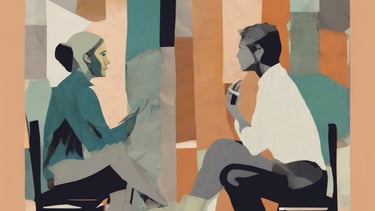



Addiction, Mental Health & Wellness Recovery
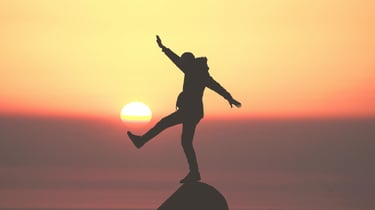

Healthy Nervous System Regulation through the Healing Journey
Get in Touch
Receive an orientation email explaining the accompaniment process, energy exchange options, costs and ways to engage in the educational mentorship and facilitation process. Sign up to the monthly newsletter to stay up to date.
Contact Alejandro directly via e-mail about any other inquiries at: AlejandroCZuluaga@gmail.com
Reach out for inquiries about nervous system regulation coaching, mentoring, and online appointment bookings.
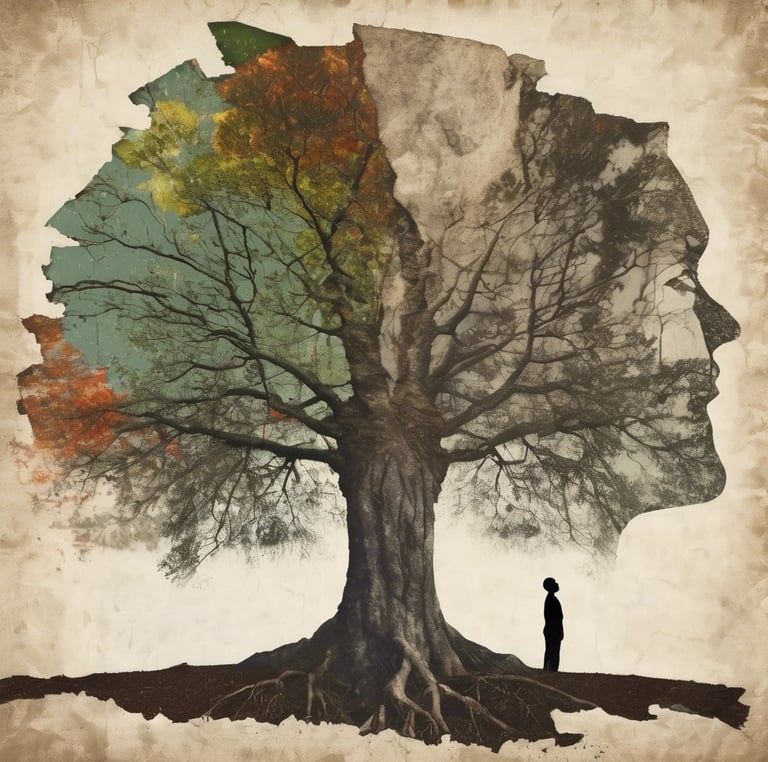

Supportive Relationships
In deep gratitude for all those who have walked along with me in this journey. It is through the depth of our connection I can continue growing in this journey.
Alejandro is a passionate individual who spends his work hours and his spare time advocating for those in need.
Simona Irwin - Mindfulness Teacher

Vancouver, BC.
It was with Alejandro’s company ,over 5 years, that I had someone to reflect with. I then slowly started to integrate the parts of myself I was battling with. Together showing up in different spaces, practices and time lines in my life; Alejandro attuned to what I needed at each phase I was experiencing. He was always open, loving and right there with me.

Karissa H. Energy Worker & Children's Programs Coordinator
London, ON.
You are such a gift. Your big Heart, kind communication, caring leadership, attention to detail, and dedication to practice both in the dance-floor and off, is such a blessing for me and our whole community.
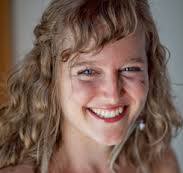
Layah J. 5R Facilitator, Dancer & Musician


I am grateful for you. You remain a mentor to me. Thank you for all the wisdom, thoughtfulness, and clowning.
Toronto, ON.
Carissa Joy, Learning Development Specialist
London, ON.
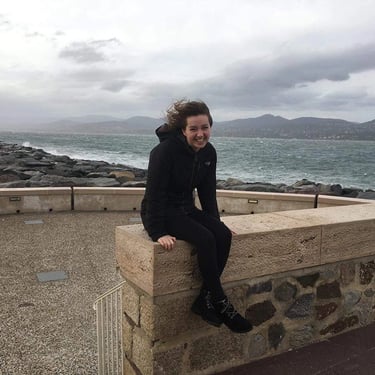
Thank you for calling me on my shit. Thank you for guiding me to an understanding of my intentions. And thank you for sharing your wisdom, your humor, your authenticity, and your radiance.
Spencer G. Highschool Teacher
Nanaimo, BC.

Alejandro is a rare human who has taught me so much about seeing through the eyes of connection; not only is he skilled and steady as a facilitator and mentor, but he also shows a willingness to meet life, be vulnerable, and speak truth that inspires me. I’m grateful to be able to weave with him in work and life.
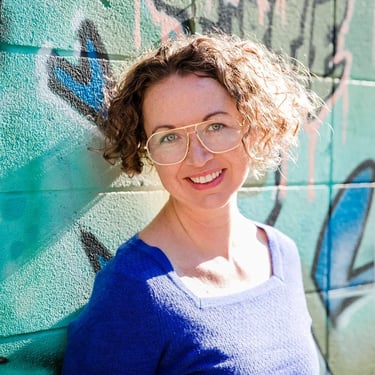
Telia H. Ministry of Citizens Services
Toronto, ON.
"Do not be dismayed by the brokenness of the world. Love intentionally, extravagantly and unconditionally" L. R. Knost
With Alejandro I learned we go deeper in the healing journey when we do it relationally, when we prioritize expressing Truth, when we find Wisdom in the creative process, and when we transform points of tension into golden nuggets for transforming trauma. His guidance helped me turn tension into growth and build a powerful set of practices to navigate life’s challenges with an open heart.
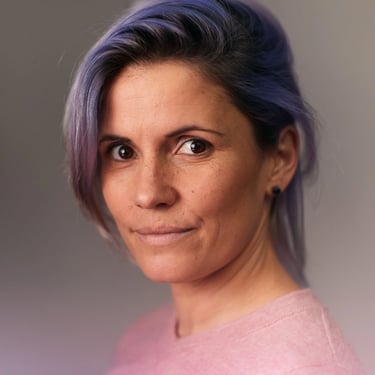
Melanie Schambach - Creative Director and Social Artist
Denver, CO.
Alejandro exemplifies kindness, creativity and beautiful aspects of play, curiosity, and self-reflection. During the times I have worked with Alejandro I have witnessed him connecting with people who are often the most marginalized and have had their trust and often hope broken down. Alejandro is able to reignite a speak of hope and truly engage on a human level that is deeply unique.
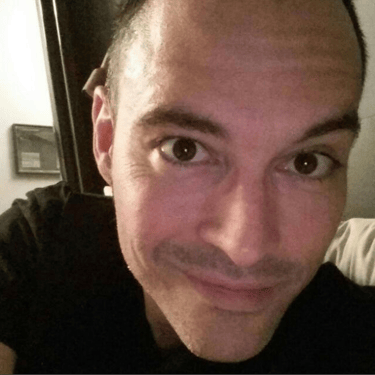
Richard M. Community Health Services Program Manager
London, ON.
Reach out for inquiries about nervous system regulation coaching, mentoring, and online appointment bookings.
Get in Touch
Receive an orientation email explaining the accompaniment process, energy exchange options, costs and ways to engage in the educational mentorship and facilitation process. Sign up to the monthly newsletter to stay up to date.
Contact Alejandro directly via e-mail about any other inquiries at: AlejandroCZuluaga@gmail.com
Inquiry, Practice & Integration
Working together to fine tune psycho-somatic practices for better resourced self-regulation. Integrate emotions & grow into a more loving nervous system.
R. Alejandro C. Zuluaga
Educator, Mentor & Facilitator
Empowering Your Nervous System
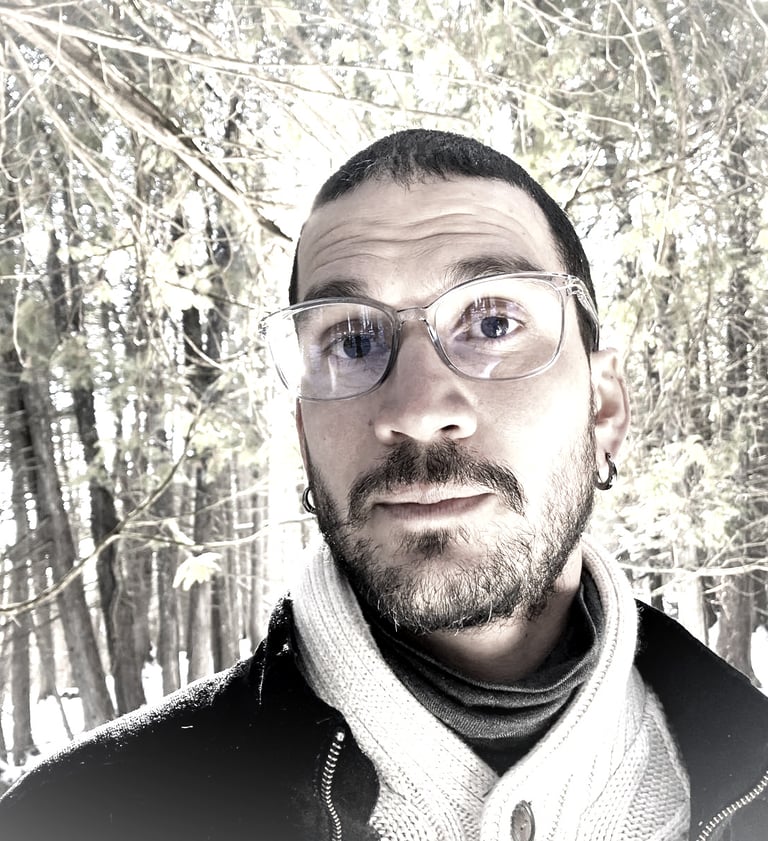

Nervous System Education
Explore our services for nervous system regulation, coaching, and mentoring to enhance your well-being.
Coaching Services
Personalized coaching sessions to help you navigate nervous system regulation and achieve emotional balance.


Mentoring Programs
Guided mentoring to support your journey in understanding and integrating nervous system practices effectively.
Book your appointment online for tailored sessions focused on nervous system education and personal growth.
Online Appointments






Embodying
Coherence
Inquiry, Practice & Integration
Working together to fine tune psycho-somatic practices for better resourced self-regulation. Integrate emotions & grow into a more loving nervous system.
R. Alejandro C. Zuluaga
Educator, Mentor & Facilitator.
Support
Empowering individuals through nervous system education.
Accompaniment
Mentoring
AlejandroCZuluaga@gmail.com
Embodying Coherence
Wellness Recovery Practices
R. Alejandro C. Zuluaga
Educator, Mentor & Facilitator
"Turn towards the thing that scares you. It is the doorway to everything you seek" Pema Chödrön


